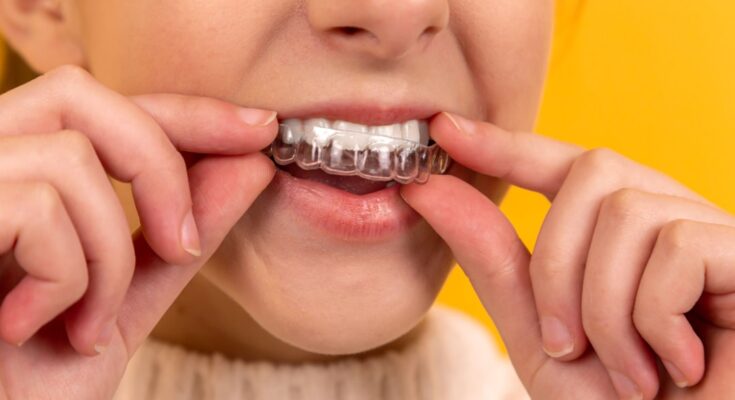Deep cleaning, also known as scaling and root planing, is a dental procedure that extends beyond routine bi-annual cleanings. This treatment is typically recommended for patients with significant plaque and tartar buildup on their teeth and below the gum line, often due to irregular dental care. Such accumulation can lead to periodontal disease, which, if left untreated, may cause severe damage to the gums and supporting bone structure.
The procedure involves the use of specialized tools to remove plaque and tartar from teeth and roots. Subsequently, the dental professional smooths the root surfaces to discourage future bacterial accumulation. Deep cleaning is crucial for maintaining optimal oral health and preventing the advancement of gum disease.
Without this intervention, excessive plaque and tartar can result in various oral health issues, including inflammation, bleeding gums, halitosis, and potential tooth loss. Understanding the importance of deep cleaning is essential for preserving dental health and avoiding more severe complications in the future. Deep cleaning is particularly beneficial for individuals who have neglected regular dental care and developed substantial plaque and tartar buildup.
By addressing these issues, patients can significantly improve their oral health and reduce the risk of periodontal disease progression. Regular dental check-ups and proper oral hygiene practices can help minimize the need for deep cleaning procedures and maintain a healthy smile.
Key Takeaways
- Deep cleaning is necessary for removing plaque and tartar buildup that regular brushing and flossing cannot reach.
- Factors affecting the cost of dental deep cleaning include the severity of the gum disease, the number of teeth that need cleaning, and the location of the dental practice.
- The average cost of dental deep cleaning can range from 0 to 0 per quadrant, with a full mouth deep cleaning costing between 0 to 00.
- Insurance coverage for dental deep cleaning varies, with some plans covering a portion or all of the cost, while others may require a copayment or have limitations on coverage.
- Additional costs to consider for dental deep cleaning may include X-rays, anesthesia, and follow-up appointments for periodontal maintenance.
- Financing options for dental deep cleaning may include payment plans, dental credit cards, or seeking assistance from third-party financing companies.
- Regular dental check-ups and cleanings are important for maintaining oral health and preventing the need for more extensive and costly dental treatments in the future.
Factors Affecting the Cost of Dental Deep Cleaning
Severity of Gum Disease and Extent of Treatment
One of the main factors that can affect the cost is the severity of the gum disease and the extent of the treatment needed. Patients with more advanced gum disease may require more extensive deep cleaning procedures, which can increase the overall cost.
Number of Teeth and Anesthesia Requirements
Additionally, the number of teeth that need to be treated can also impact the cost, as well as whether or not anesthesia or sedation is required for the procedure.
Location and Professional Expertise
Another factor that can affect the cost of dental deep cleaning is the location of the dental practice. Dental care costs can vary significantly depending on where you live, with urban areas generally having higher costs than rural areas. The experience and expertise of the dental professional performing the deep cleaning can also impact the cost, as more experienced professionals may charge higher fees for their services.
Average Cost of Dental Deep Cleaning

The average cost of dental deep cleaning can range from $140 to $300 per quadrant (or section) of your mouth. This means that if you need deep cleaning on all four quadrants of your mouth, you could be looking at a total cost of $560 to $1200. Keep in mind that these are just average costs and your actual expenses may vary depending on your specific needs and circumstances.
It’s important to note that these costs are for the deep cleaning procedure itself and do not include any additional treatments or follow-up appointments that may be necessary. If you require additional treatments such as antibiotic therapy or periodontal maintenance, these will incur additional costs. It’s also important to consider any potential costs for anesthesia or sedation if they are required for your procedure.
The average cost of dental deep cleaning can range from $140 to $300 per quadrant (or section) of your mouth. This means that if you need deep cleaning on all four quadrants of your mouth, you could be looking at a total cost of $560 to $1200. Keep in mind that these are just average costs and your actual expenses may vary depending on your specific needs and circumstances.
It’s important to note that these costs are for the deep cleaning procedure itself and do not include any additional treatments or follow-up appointments that may be necessary. If you require additional treatments such as antibiotic therapy or periodontal maintenance, these will incur additional costs.
Insurance Coverage for Dental Deep Cleaning
| Insurance Provider | Coverage for Dental Deep Cleaning |
|---|---|
| Provider A | 80% coverage after deductible |
| Provider B | 100% coverage for in-network dentists |
| Provider C | 50% coverage for out-of-network dentists |
Many dental insurance plans provide coverage for deep cleaning procedures, but it’s important to check with your specific plan to understand what is covered and what your out-of-pocket costs may be. Some plans may cover a portion of the cost of deep cleaning, while others may cover it in full. It’s also important to note that some plans may have waiting periods or limitations on coverage for certain procedures, so it’s important to review your plan details carefully.
If you do not have dental insurance or if your plan does not provide coverage for deep cleaning, there are other options available to help offset the cost. Some dental practices offer in-house membership plans or discount programs that can provide reduced rates for deep cleaning and other dental services. Additionally, there are financing options available that can help you spread out the cost of deep cleaning over time.
Many dental insurance plans provide coverage for deep cleaning procedures, but it’s important to check with your specific plan to understand what is covered and what your out-of-pocket costs may be. Some plans may cover a portion of the cost of deep cleaning, while others may cover it in full. It’s also important to note that some plans may have waiting periods or limitations on coverage for certain procedures, so it’s important to review your plan details carefully.
If you do not have dental insurance or if your plan does not provide coverage for deep cleaning, there are other options available to help offset the cost.
Additional Costs to Consider
In addition to the cost of the deep cleaning procedure itself, there are several additional costs that you may need to consider. If your dentist recommends additional treatments such as antibiotic therapy or periodontal maintenance, these will incur additional costs. You should also consider any potential costs for anesthesia or sedation if they are required for your procedure.
It’s also important to factor in any follow-up appointments that may be necessary after your deep cleaning. These appointments may include periodontal maintenance visits or additional cleanings to ensure that your gums remain healthy. Additionally, if you have not had regular dental check-ups and cleanings in the past, you may need to budget for more frequent cleanings in the future to maintain good oral health.
In addition to the cost of the deep cleaning procedure itself, there are several additional costs that you may need to consider. If your dentist recommends additional treatments such as antibiotic therapy or periodontal maintenance, these will incur additional costs. You should also consider any potential costs for anesthesia or sedation if they are required for your procedure.
It’s also important to factor in any follow-up appointments that may be necessary after your deep cleaning. These appointments may include periodontal maintenance visits or additional cleanings to ensure that your gums remain healthy.
Financing Options for Dental Deep Cleaning

In-House Membership Plans and Discount Programs
Many dental practices offer in-house membership plans or discount programs that can provide reduced rates for deep cleaning and other dental services. These programs typically involve paying an annual fee in exchange for discounted rates on services throughout the year.
Third-Party Financing Options
Additionally, there are third-party financing options available, such as CareCredit, which offers special financing options specifically designed for healthcare expenses, including dental care. CareCredit allows you to spread out the cost of your deep cleaning over time with convenient monthly payments. This can make it easier to fit the cost of deep cleaning into your budget without having to pay for it all at once.
Flexible Payment Options
With these financing options, you can choose a payment plan that works best for you. Whether it’s an in-house membership plan or a third-party financing option, you can rest assured that you’ll be able to get the dental care you need without breaking the bank.
Importance of Regular Dental Check-ups and Cleanings
In addition to understanding the need for deep cleaning, it’s important to recognize the importance of regular dental check-ups and cleanings in maintaining good oral health. Regular check-ups allow your dentist to monitor your oral health and catch any potential issues early before they become more serious problems. Additionally, regular cleanings help remove plaque and tartar buildup from your teeth, which can help prevent gum disease and tooth decay.
By staying on top of your regular dental check-ups and cleanings, you can help prevent more serious issues from developing in the future and potentially save yourself from more extensive and costly treatments down the road. It’s important to prioritize your oral health by scheduling regular check-ups with your dentist and following their recommendations for maintaining good oral hygiene at home. In addition to understanding the need for deep cleaning, it’s important to recognize the importance of regular dental check-ups and cleanings in maintaining good oral health.
Regular check-ups allow your dentist to monitor your oral health and catch any potential issues early before they become more serious problems. Additionally, regular cleanings help remove plaque and tartar buildup from your teeth, which can help prevent gum disease and tooth decay. By staying on top of your regular dental check-ups and cleanings, you can help prevent more serious issues from developing in the future and potentially save yourself from more extensive and costly treatments down the road.
If you’re interested in learning more about the cost of dental deep cleaning, you may want to check out this article on The Pharm Agency’s website. They provide valuable information on the factors that can affect the cost of deep cleaning and offer insights on how to budget for this important dental procedure. Click here to read the article.
FAQs
What is dental deep cleaning?
Dental deep cleaning, also known as scaling and root planing, is a procedure performed by a dentist or dental hygienist to treat gum disease. It involves removing plaque and tartar from the teeth and below the gumline, as well as smoothing the root surfaces to promote healing.
How much does dental deep cleaning cost?
The cost of dental deep cleaning can vary depending on factors such as the severity of the gum disease, the location of the dental office, and whether dental insurance is used. On average, the cost can range from $140 to $300 per quadrant (or section) of the mouth.
Does dental insurance cover the cost of deep cleaning?
Many dental insurance plans provide coverage for dental deep cleaning, but the extent of coverage can vary. It’s important to check with your insurance provider to understand the specific details of your coverage and any potential out-of-pocket costs.
What are the potential benefits of dental deep cleaning?
Dental deep cleaning can help to remove bacteria and plaque from below the gumline, reduce inflammation, and prevent further progression of gum disease. It can also help to improve overall oral health and prevent tooth loss.
Are there any potential risks or side effects associated with dental deep cleaning?
While dental deep cleaning is generally considered safe, some potential risks and side effects may include tooth sensitivity, gum tenderness, and temporary tooth discoloration. It’s important to discuss any concerns with your dentist before undergoing the procedure.



